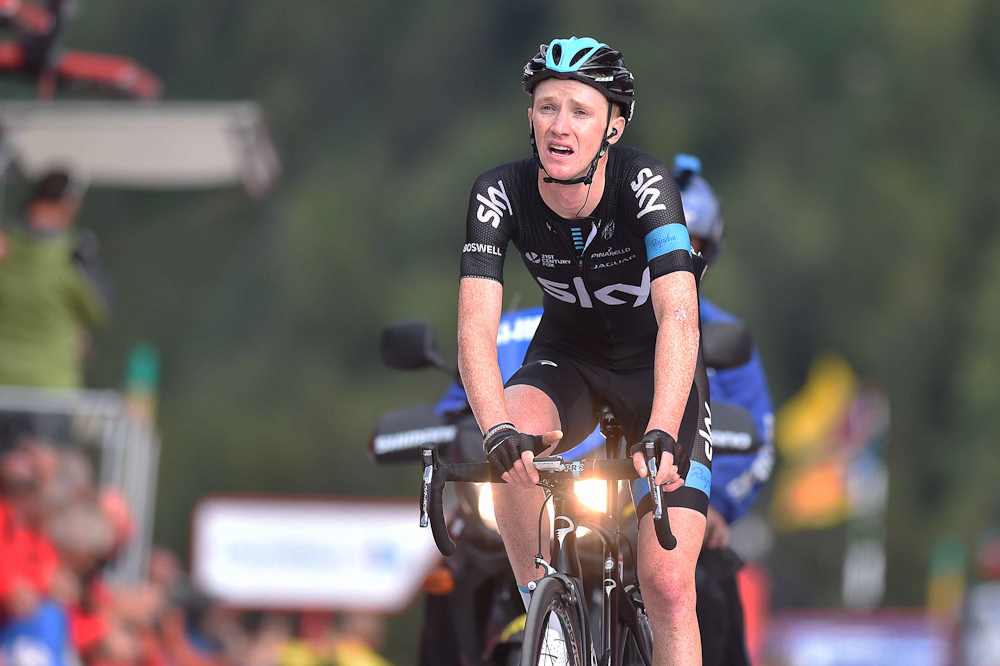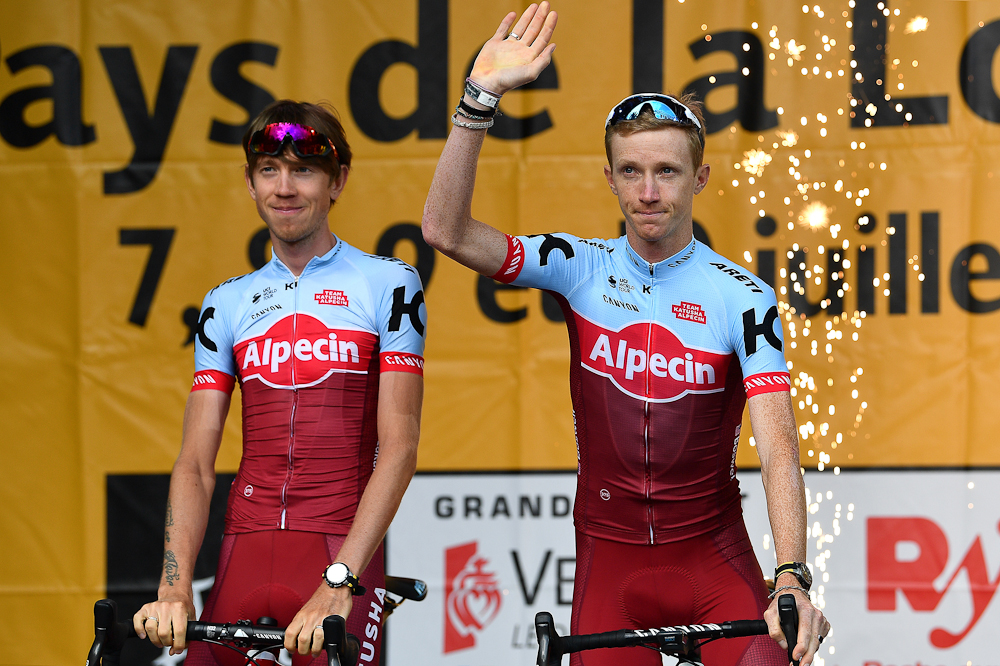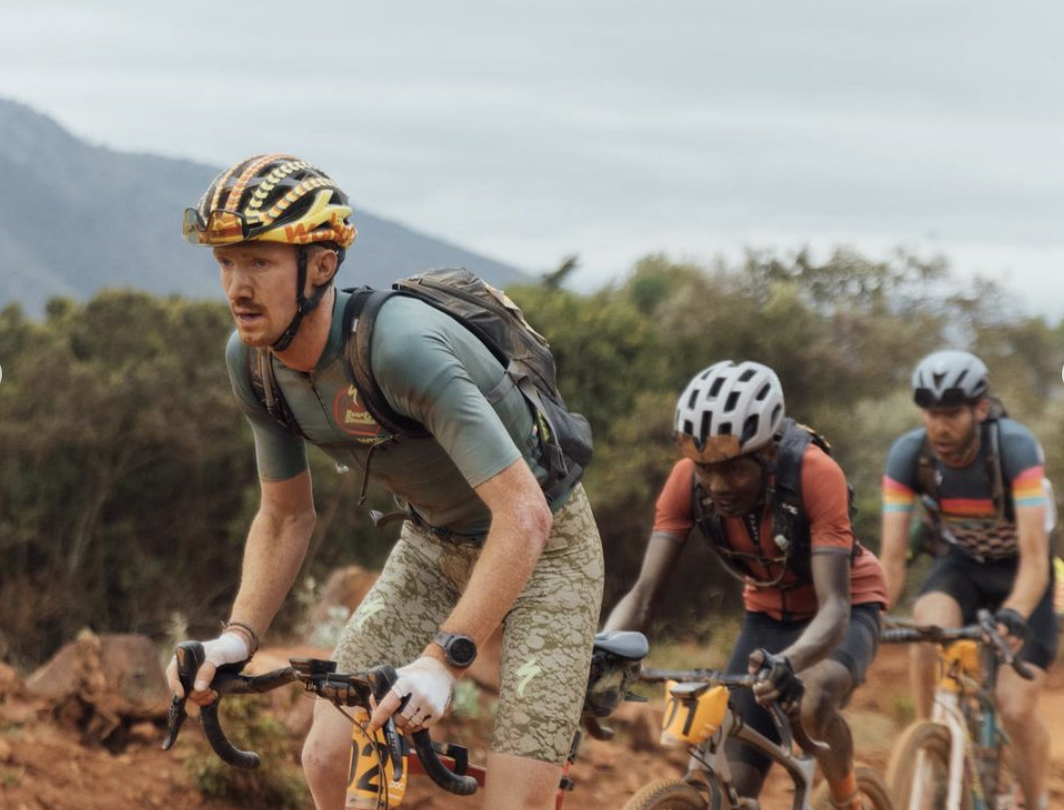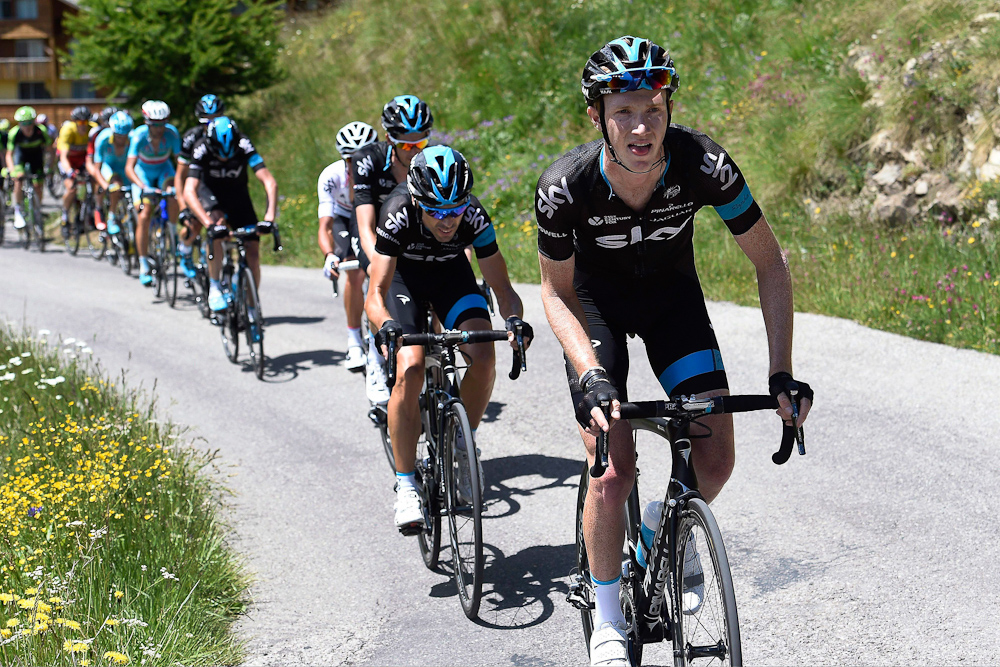Retirement Chronicles: When Philippa York met Ian Boswell
The 30-year-old stepped away from the WorldTour in 2019 but is now a different rider and a different person

The third installment of our new mini-series, Retirement Chronicles sees Philippa York catch up with Ian Boswell to talk about his retirement from professional road cycling.
Boswell, 30, retired from road racing at the end of 2019 following a crash which caused him the sixth concussion of his career at Tirreno-Adriatico. In what was a contract year, he didn't race again for the folding Katusha team, and made the switch to gravel despite a contract offer from Rally Cycling.
The American turned pro after spending time in the Trek-Livestrong (now Hagens Berman Axeon) setup, spending five years at Sky before ending his time in the peloton with two seasons at Katusha.
During what was a seven-year road career, Boswell completed five Grand Tours, including the 2018 Tour de France, and raced as a domestique in the mountains, while personal highlights included a Tour of the Gila stage win and a top five at the Tour of California.
Now competing on the gravel circuit and sponsored by Wahoo and Specialized, Boswell is the current champion of Unbound Gravel, having beaten fellow ex-pro Laurens ten Dam in the 200-mile race in June.
Philippa talked to Boswell about the hows and the why of his retirement, how he coped with the switch and the results changes, and what he's doing now.
Philippa York: How did you come to your retirement from road racing?
Get The Leadout Newsletter
The latest race content, interviews, features, reviews and expert buying guides, direct to your inbox!
Ian Boswell: I never thought my career would end. I was immersed in the lifestyle and daily routine. I never actually though of what’s ahead. It’s become so competitive that the minute you think of something else, like school on the side, you start to find avenues out of it.
PY: Did you see it coming?
IB: In the spring of 2019, Tirreno stage 4, I crashed and suffered a concussion. I thought I’d take the week off and then do Basque Country but my wife was in Nice at the time and she said I couldn’t ride. She was supposed to go to the US and I was saying she could go home because my thinking was I could get back into training. But she kept saying don’t ride. Once she did leave, I tried to ride but I wasn’t OK, so I ended up not racing the rest of that season and I was out of contract at the end of the year with Katusha.
In May I returned to the US, saw more specialists, but I didn’t really get back into racing until late June or July. But I wasn’t fixed so I’d have two good days then a bad day. I’d take a week off then have a decent week. At that point, it was a stressful process. With it being a contract year, and with the team folding, I started to think about whether I wanted to return to racing, and if anyone was going to pick me up. I went through a mental transition of who am I if I don’t race.
PY: Was that a strange thing to ask yourself?
IB: Well we moved to a location in the US where I wasn’t Ian Boswell the pro athlete. I’d been part of this community before but I’d been gone for so long that I was slightly mysterious. They all knew me because my wife did events in town, but I’d effectively moved back into the community and wasn’t necessarily the pro cyclist because no one knows what that is. People would come up to me and say, ‘oh, you’re that runner’ and I’d say no not really but that didn’t matter, which was great.
I had a contract at the end of the year to go back to road racing and my initial thought was that I was going to return because it was all I knew. I was only 28, I was coming into the peak of my career, and I’d done the Tour the year before. Making it to the Tour was such a big milestone in my life and something that I’d had dreamed of from childhood.
So, it was a dream that had come true. But during that process of being at home, not racing, and away from the world of cycling, it sunk in that I’d accomplished a lot and that if I went back I had to ask myself what was I still trying to achieve. What did I have to prove to myself, my family, and my friends? And eventually I came to the conclusion that in order to make the next step in my life I had to walk away from pro racing.

PY: Did you know what you were walking towards?
IB: No, I had no idea. It was scary but I couldn’t make the next decision until I decided to stop racing because you can’t sit on the fence. Friends said to me 'Ian, fences are where birds sit. You have to make a decision'. I’ve always made very dramatic decisions. I was always all this way or all that way, I don’t want to be in the middle 50-50.
Once I made that decision it was a huge relief but at first, I was actually trying to get other people around me to make the decision for me because of the complications around my injury. I wanted my Mom, my Dad, my wife, doctors to make that decision for me. I wanted someone to say ‘Ian I don’t think it’s OK for you to go back’. Even though I knew what I wanted to do.
PY: Were you avoiding hearing yourself say it?
IB: I didn’t want to be responsible for it because it’s the dream, the identity, it’s who you are and what you do. Thankfully, during that period, I started doing stuff with my brother, such as other projects at home. I was bad at everything, but we built a greenhouse, I started a garden, we fixed projects in our barn, and I had so much fun asking questions about things.
All of a sudden, I was an expert in nothing else besides cycling, and it was very refreshing to ask and to say I don’t know things, like how to do oil changes on the car or to hook tools on the tractor. That took a huge ego drop to realise I didn’t know how to do so many of these things.
PY: I can relate to that, too, when I had to write out a CV for a job application and list my qualifications and skills. Have you found that?
IB: I was fortunate that I was close with Wahoo. They’d sponsored me at Sky and Katusha, they were an American company, they were very young when they sponsored Sky so when I told them I was done racing they came to me and said we have a position for you. I was fortunate they came to me but like you said I was scared because I didn’t know what it meant.

PY: How was the first year after stopping?
IB: It was hard, but the pandemic was probably the best thing that happened for my mental state because I couldn’t go anywhere. There weren’t races happening on TV and even during the winter after I retired I’d flown over to Nice to spend two weeks hanging out with former teammates.
I was over in Nice riding every day with them, Richie Porte, Nico Roche, and Larry Warbasse. I was thinking I’m going to miss this because you fall back into that routine. The job still hadn’t fully picked up yet so I had free time to do five/six-hour rides every day. Then the pandemic came along and the things like the gravel races and promo events that I would have been going to for Wahoo all stopped.
I started taking on more workload, and I wasn’t travelling for the first time in my life. But that allowed me to realise I had a lot of catching up to do, and that I needed to take another step away from the racing side of things. There were no races on TV. Had there been races, I would have been thinking ‘oh there’s that guy I used to race with winning races’.
But since nothing was happening I was thinking ‘cool I’m super happy that I’m at home’. I had something else going on to focus on, other skills to apply and over the course of the year that sense of who I was and who I was becoming very quickly shifted, thanks to the fact that everything was on pause. I had eight months to focus on myself and my new life.
PY: A lot of people have a dip or feel depressed when they stop. Did you?
IB: In 2019 I had a bit of depression. The Tirreno crash was in March so there were chemical imbalances due to the concussion, so that came into it. I felt lost, I’d lost my dream and it was hard for others to understand that. I’d been so immersed in it; everything was for cycling. I think it’s worse now with social media because everyone can reach out to you and ask how you are and what are you doing. I didn’t interact with any of that then.

PY: How did you process any regrets that you had?
IB: I’ve learned that you have to process that you aren’t doing it anymore, and it’s a slippery slope, once you get into the mentality. Like when Joe Dombrowski won a Giro stage and someone messaged ‘I’m so happy Joe won, but so sad you couldn’t be there.’ I was thinking… 'I’m so happy I’m not there'. Six hours in the pouring rain and I always hated racing Italian roads.
I don’t miss that. I think that came from being content with what I’d done. I achieved what I wanted. I achieved so much compared to the kids I started racing with. Like Froomey still wants more but I’d achieved so much of what I wanted as a young rider.
PY: Did you have any sense of the normal world outside of being a bike rider?
IB: I did because I realised there were a lot of normal things I’d given up when I was younger. When I’d come home in the summer things like hiking or fishing, mowing the lawn - I wanted to do them but it was easier for me, mentally, to go back to Nice, to the apartment and do nothing. On social media, I’d see guys training or at an altitude camp so I’d get drawn back into that instantly.
For example, in the 2018 winter, there was snow on the ground at home in Vermont, it was Christmas, New Year and I was freaking out when I saw people training in Spain. I freaked out, thinking I needed to go back to Europe. In the grand scheme of things what difference did four days make? It made no difference, but I didn’t have the perspective to see that it didn’t affect May or June. I had to be constantly active. I had to be engaged.
PY: How long has it taken to gain some perspective, that you don’t have to be so active?
IB: I still love being active but, if anything, not racing has allowed me to fall back in love with just riding my bike. In modern cycling, the training is so specific and so intense. I was done with that but now I can just go ride 20 miles with my colleagues and it’s so good.
I can go for a morning ride now, at 7am and it’s such a privilege, especially because of the crash. I wasn’t sure I’d be comfortable riding again and so now I appreciate the shortest rides. There are days when I ride a fat bike wearing jeans and do 4 miles and I get to be a kid again. That’s awesome because I’ve rediscovered the simple pleasure of riding a bike.
A post shared by Ian Boswell (@ian_boswell)
A photo posted by on
Philippa York is a long-standing Cyclingnews contributor, providing expert racing analysis. As one of the early British racers to take the plunge and relocate to France with the famed ACBB club in the 1980's, she was the inspiration for a generation of racing cyclists – and cycling fans – from the UK.
The Glaswegian gained a contract with Peugeot in 1980, making her Tour de France debut in 1983 and taking a solo win in Bagnères-de-Luchon in the Pyrenees, the mountain range which would prove a happy hunting ground throughout her Tour career.
The following year's race would prove to be one of her finest seasons, becoming the first rider from the UK to win the polka dot jersey at the Tour, whilst also becoming Britain's highest-ever placed GC finisher with 4th spot.
She finished runner-up at the Vuelta a España in 1985 and 1986, to Pedro Delgado and Álvaro Pino respectively, and at the Giro d'Italia in 1987. Stage race victories include the Volta a Catalunya (1985), Tour of Britain (1989) and Critérium du Dauphiné Libéré (1990). York retired from professional cycling as reigning British champion following the collapse of Le Groupement in 1995.
